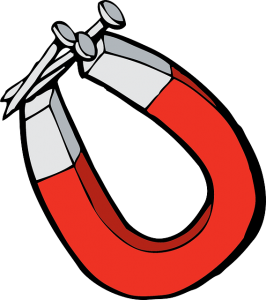Ther e’s a continuous dispute about whether direct guideline or discovery knowing works finest in ELT. Direct knowing likewise referred to as specific knowing is when you provide trainees brand-new info clearly. For instance, you inform them that we form the plural in English by including -s to the end of words. By contrast, discovery knowing is letting trainees determine the guidelines on their own. I question this dispute will ever be settled. In reality, it promises that in reality both approaches operate in various contexts with various sort of info.
This post has actually been being in my drafts folder for 5 years, so the scenario might have altered a bit (For instance, here’s a summary of research study tasks on the advantages of direct knowing for ESL trainees). However there are still lots of resources like this one, explaining discovery knowing. I keep in mind being in the instructors space composing input texts for trainees to deduce guidelines of grammar from. I believe the pendulum has actually swung back the other method a bit. Still there’s a sense that specific description or direct guideline ought to be utilized just as a last hope. It’s actually for when your trainees are having a hard time and truthfully it does not work extremely well.
However, a couple of years earlier, while teaching my then four-year old about magnets, I recognized how beneficial direct guideline can be!
Can a four-year old find magnets?
We were doing an activity about compassion. We checked out a book about bullying. Then I highlighted some magnets and some paperclips. The concept was to teach what magnets are and how they work, while likewise discussing how compassion brings in individuals. Obviously, he liked the magnets and he got really delighted about getting paperclips with them. Then he proceeded to attempting to get other things with them.
Now this looked like a best time for discovery knowing. Let him attempt to get a lot of things with the magnet, see what works and what does not. Then we might discuss what was magnetic and what wasn’t. The issue is, I didn’t get ready for this. We remained in our living-room on the flooring doing an enjoyable activity, so we had pencils, paper, crayons, and a book offered. We didn’t have a great deal of little iron-heavy things where he might reach them. So essentially it was him not choosing things up and getting upset. He rapidly got really annoyed.
Our Home is Remarkably Metal-free!
After a couple of minutes, I informed him magnets just deal with metal things. I then guided him to the fridge and the metal near the fireplace (certainly, there was no fire burning). Without that specific description, I question he would ever have actually found out what things were magnetic and what weren’t. And the factor for that is that he does not actually understand what metal is, not to mention iron. In reality, our devices are all stainless-steel!
To make it even worse, our tub is iron, however covered with a layer of porcelain. Not even I might determine why our tub was magnetic, truthfully, due to the fact that iron tubs aren’t that typical anymore. So would he have had the ability to find that the paperclips, fireplace cover, and sides of the refrigerator are all metal, whereas the dishwashing machine and front of the refrigerator and over are all metal however a various kind? Appears not likely.
Discovery Knowing is Contrived
These problems advised me of how contrived a great deal of the discovery finding out workouts I developed for my trainees are. To get him to find magnetism I ‘d need to have a variety of non-metal things, then a variety of magnetic and non-magnetic metal things. Perhaps I ‘d choose to make sure a range of colors or textures so he might find out those things are unimportant. Or perhaps have some huge and little things in case he believes the magnet somebody chooses things up. And now I’m doing a great deal of directing and prepping to deceive him into finding what I desire him to find. Why not simply inform him?
Returning to mentor, I when made a chart for my trainees, comparing present basic to present progressive to assist trainees find the distinction. As all of us understand, the book states you can’t utilize the progressive for stative verbs, especially verbs associated with sensations, ideas, or experiences. Other than obviously, you can, however there’s a shift in significance. Or you’re being poetic or colloquial or having fun with language,
It was remarkable the number of verbs I needed to omit to assist them “find” the guideline I desired them to find out. I discovered that I was developing a really minimal set of verbs. And a really streamlined guideline for my trainees to find. Perhaps, that’s doing them a major injustice. It would have been much better to set out the methods present basic and present progressive are utilized, and to provide great deals of fine examples. Then, when I ‘d done the description, I might set my trainees off to find subtleties or exceptions or other examples.
However if they do not have the essential background understanding, discovery knowing is going to be far too discouraging for everybody.
Bruce Lee, Bruce Lee, Bruce L-Y?

A more ELT-related minute created my child quickly after the magnet lesson. My child had actually begun finding out to check out. He was consumed with how to spell words and continuously asked us how to spell words, “What letters remain in young boy?” “What are the letters of cow?” I when stated he was completely ideal in every method. So he asked, “What are the lee letters? Perfect and perfect-lee”
He understood the fundamental vowel noises and names of the letters. However he was frequently annoyed that the long E noise at the end of words like child is made by a Y. And simply as he began to figure that out, he found that the terminal Y can likewise make a long I sound in words like fly
Eventually, he got sufficient info and discovered enough words to spell words and check out words properly. However in order for him to get to that point, he required a great deal of direct guideline. He required to be informed how words are spelled. He likewise required to be informed that Y at the end of words alters noises.
I enjoy discovery knowing. Lessons that include discovery are frequently a lot of enjoyable and really communicative, with great deals of talking and thinking and meaning-making. However I enjoy direct guideline, too. Without it, trainees would not understand enough to find anything. For more, things I discovered while having fun with my kid material, take a look at my post on drawing Mario and how it taught me great mentor routines!
Source link

